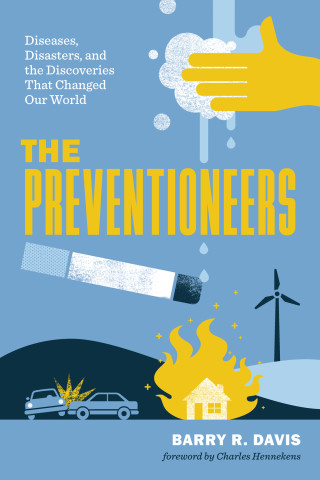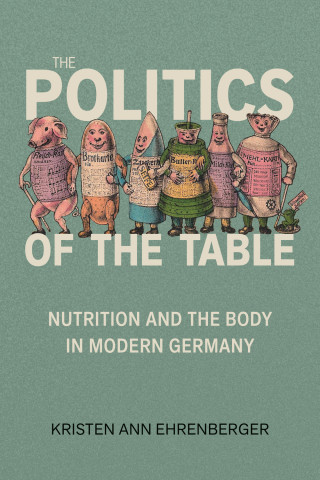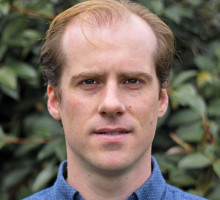
Reviews
I found this book useful from a clinical point of view, as well as clarifying from a psychedelic therapy point of view. I certainly recommend this book.
A deeply researched, significant and very specific intervention into the historiography of LSD, drug research, research design and drug use in the context of psychiatry. Oram's study benefits a close and extended reading, and he should be congratulated on writing such a fascinating history.
People interested in drug development, ethics boards, approvals committees and the consequence of research-governance directives will enjoy this book. The Trials of Psychedelic Therapy shines a fascinating light on a discipline that is neither pure pharmacotherapy nor pure psychotherapy. Oram shows how LSD's unique position between these seemingly disparate fields has been, and still is, its potential undoing when it comes to obtaining formal licensed approval.
[The Trials of Psychedelic Therapy] introduces many key figures in LSD research and provides convincing new analysis of studies that are fascinating in themselves. Now that psychedelic therapy is again drawing interest, it is worth fully exploring why research faltered the first time around.
Oram's accessible writing style should appeal to a range of audiences, from historians and psychiatrists to graduate students and popular science readers. His major argument is consistent and coherent, and his analysis raises interesting questions... Prohibition might not have killed the field, but many 'first wave' and contemporary psychedelic researchers strongly believe that it impedes their work. Perhaps Oram's book will offer new stories to tell in the emerging 'psychedelic renaissance'.
Carefully researched and insightful... [Oram] tackles how serious medical investigators handled LSD.
This book is highly recommended reading not just for aficionados of hallucinogenic drugs but for anyone interested in the history of drug development and regulation.
Taking an in-depth look at the trials and tribulations of psychedelic research in America, Oram offers a sophisticated and careful analysis. The book is very well written, and the research is empirically rich and detailed. There is no other historical account that offers this degree of breadth on the topic, nor one that so meticulously tracks the relationship between the FDA and psychedelic researchers.
A remarkably valuable case study. This important, well-researched, and well-written book engages with and challenges the existing historiography on the rise and fall of LSD both in the United States and elsewhere. A large popular and academic audience will be interested in this nuanced addition to the drug’s biography.
The Trials of Psychedelic Therapy is a wonderful read. It's packed with extraordinary detail, gives an old story a new ending, and leaves the reader with questions—something more precious than answers. Without following an agenda, Oram cuts to the heart of darkness of modern psychopharmacology. This book is a trip well worth taking.
This fascinating book reveals that the demise of LSD research was mostly a result of the efficacy requirements of the Drug Amendments of 1962, which shaped drug research to conform to the ‘magic bullet’ concept of drug function. Detailed here are the riveting struggles of the pioneers trying to find a place for LSD in medicine. A great read!
A fascinating addition to the growing literature on the history of psychiatric therapeutics, examining the now-forgotten story of psychiatry's experiments with LSD. Matthew Oram has provided a throughly researched and genuinely original account of this episode.
Accurate and astute—a comprehensive and challenging resource in the midst of the current renaissance of psychedelic investigations, both for current researchers and government regulators.
A fascinating narrative history of psychiatric LSD research in the United States—a longer and more interesting story than is generally known. Oram’s insightful analysis of LSD’s last days as a potential medicine furthers our understanding of what may have been lost when the double-blind, placebo-controlled trial became the ultimate measure of psychopharmacological truth.
Book Details
Acknowledgments
Abbreviations
Introduction: Mysticism, Clinical Science, and the FDA
1. Free Experiment: Explorations in LSD Psychotherapy
2. Regulating Research: LSD and the Food and Drug
Acknowledgments
Abbreviations
Introduction: Mysticism, Clinical Science, and the FDA
1. Free Experiment: Explorations in LSD Psychotherapy
2. Regulating Research: LSD and the Food and Drug Administration
3. Proof of Efficacy: LSD and the Randomized Controlled Trial
4. Against the Tide: The Spring Grove Experiment
5. Elusive Efficacy: The Trials of Psychedelic Therapy
6. The Quiet Death of Research: Psychedelic Therapy in the 1970s
Epilogue: Resurrection
Notes
Index






